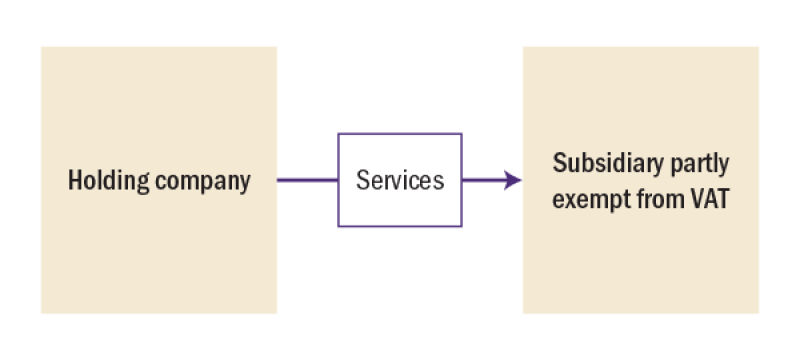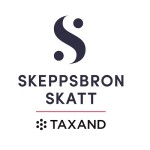Transfer pricing (TP) and VAT are two different areas of tax that are profoundly connected to each other and interdependent when it comes to intra-group transactions.
However, new guidance and recently published court cases have turned the situation in Sweden upside down and moved the two areas further away from each other. The development in Sweden could mean that parent companies invoicing management fees to subsidiaries with mixed businesses – that conduct operations that are partially exempt from VAT – in accordance with established TP principles, may have to increase the management fee which will lead to increased costs for its subsidiaries.
In this article, recent developments in Sweden and the implications that these factors could have going forward are considered.
Intra-group services: Shareholder and overhead costs
Parent companies – under the correct circumstances – are encouraged to charge for any services performed of benefit for their subsidiaries to be compliant from a TP perspective. The invoiced charge should include all direct and indirect costs for providing a service.
At this point, it is also stressed that in accordance with international consensus outlined in the OECD Transfer Pricing Guidelines (OECD TPG), costs for activities that the parent company does in its capacity as a shareholder can never be deemed a service, and costs for these activities should therefore not be charged to the subsidiaries.
So called ‘shareholder costs’ could be, for example, costs for:
Initial public offerings (IPOs);
Consolidated annual reports;
Interim reports;
Equity issue;
Board meetings; and
Acquisitions.
The above costs are called ‘overhead costs’ from a VAT perspective, i.e. costs for having the business up and running. Shareholder costs and overhead costs do not fully overlap, for example, all shareholder costs could be deemed overhead costs but not vice versa. The differences are for the scope of this article irrelevant.
Up until two years ago, when the Swedish Tax Agency (STA) published their VAT position paper (below STA position), it was assumed that overhead costs should not be included in an intra-group charge for management services.
Recent VAT development in Sweden
STA’s position
From a VAT perspective, prices for services between group entities should equal market value. This being said, prices for services that are below, or above market value rarely cause any VAT issues when both the service provider and the recipient have a right to fully deduct VAT. However, in situations where the recipient has a mixed business or is fully exempted from VAT (e.g. the real estate or health sector), there might be a risk for tax avoidance.
To reduce the risk of tax avoidance, the STA has a right to reassess and adjust a price for a service provision provided that:
The remuneration is below market value;
The buyer does not have a full right of deduction (VAT);
The seller and buyer are associated by e.g. ownership; and
There is no business reason as to why the price is below market value.
While the second and third bullet points are usually easy to assess, the first and fourth may require deeper analysis. To assess the first bullet point in Sweden, it is recognised that the remuneration is below market value if the remuneration received by the provider is below its costs for performing the services. It was although unclear what costs should be included for this purpose.
In 2019, the STA published its new position concerning the above. This was supposed to clarify how the first bullet point regarding market value was to be assessed and what costs should be included. The STA argued that if the company’s only business is to provide services to its subsidiaries, overhead costs shall be included to assess the market value. If the overhead costs are high in a certain year, for example due to costs for IPOs, the costs could be split and reported over a period of five years.
According to the STA, overhead costs should be included for consistency reasons. The STA mentioned that a holding entity that only performs management activities to its subsidiaries (including such that are partially or fully exempt from VAT) and invoices costs for such services were previously allowed to fully deduct input VAT. Holding entities could therefore deduct input VAT on costs for which there was no matching transaction from the holding entity, i.e. the costs did not match a transaction.
As input and output VAT should correspond, one could argue that there is a mismatch that could facilitate tax avoidance. In order for the VAT to be fully neutral, the STA argues that it is a necessity to include overhead costs when determining if the price for the services equals its market value.
As such, a holding entity that only performs management services to its subsidiaries should include all costs, including overhead costs (i.e. shareholder costs), when invoicing subsidiaries that are partially or fully exempt from VAT. Up until early 2021, the position had only been tested in the lower courts and it was thus unclear if the view of the STA would be upheld.
Recent case law
In two recently published cases, the Swedish Court of Appeal has confirmed the STA’s position. The two cases concerned holding companies with Swedish subsidiaries that had a limited right to deduct VAT (real estate and healthcare). The holding companies provided management services/activities to the subsidiaries but did not conduct any operative business on their own. One of the companies also had costs related to an IPO.
The holding companies had only invoiced the subsidiaries for direct and indirect costs for providing the services and thus removed all overhead costs, among them the costs relating to the IPO, and reported output VAT for this. However, the companies had deducted input VAT for all activities, i.e. both for overhead activities and for the services.
The STA argued, in line with its position, that VAT should be a neutral tax, i.e. input VAT and output VAT should correspond, and in order to be fully neutral, the holding company must charge the subsidiaries for all their costs. The STA therefore decided to make a reassessment and adjusted the basis for VAT and included the overhead costs. Both holding companies appealed their decisions.
In their appeal, one of the companies argued that invoicing overhead costs in addition to the direct and indirect costs for providing the services would mean that the price per hour for performing the services to the subsidiaries would amount to approximately €1,800 (approximately $2,145), which would be unreasonably high for the low value-adding services they provided. Further, the company stressed that had they provided the same type of services to external parties, they would have applied a significantly lower price per hour, i.e. not €1,800 per hour.
While the lower courts sided with the holding companies, the Court of Appeal sided with the STA. The Court of Appeal dismissed the holding company’s objections and arguments. It is still uncertain if the companies will appeal, but the outcome has raised questions on what implications this could have in other tax areas.
TP implications and consequences
The recent development in Sweden has been widely criticised by VAT and TP professionals for a simple reason: it is impossible to comply with both regulations. Holding companies performing management activities to subsidiaries that are partially exempt from VAT will therefore find themselves at a crossroad choosing between complying with VAT regulation, and following the OECD TPG.
To illustrate this, if any of the holding companies in the above cases would have had foreign subsidiaries, two alternative scenarios could play out. Firstly, the holding company follows the OECD TPG and, secondly, the holding company follows the VAT guidelines.
The background is the same as described above and illustrated below. The holding company performs management activities to its subsidiary operating in the healthcare sector. The holding company deducts input VAT on all costs incurred. The holding company has also incurred overhead costs, among them costs for an IPO.

In the first scenario, the holding company invoices the subsidiary for their services but decides to remove the costs for the IPO, as they deem those costs to be shareholder costs. The holding company thus decides to comply with the OECD TPG.
The VAT department at the STA notices this and stresses that the subsidiary has paid a price below market value for the services and makes a reassessment. The STA then includes the cost for the IPO. The holding company’s VAT will consequently increase, leading to higher costs for the subsidiary who cannot deduct VAT.
In the second scenario, the holding company decides to include its costs for public offering in their intra-group charge to comply with VAT regulations in Sweden. The TP department in the subsidiary’s country notices this and decides that the subsidiary has paid too much to the holding company, and adjusts the results of the subsidiary to what they consider an arm’s-length result, i.e. lower the cost for the intra-group charge.
In conclusion, either way the holding company decides to go will have a direct effect on the opposite tax area. The choice of path would therefore likely boil down to which one is associated with lower risk for e.g. tax penalties.
Taking the above cases into consideration, adhering to the OECD TPG and not including shareholder costs has proven to be questioned by the STA. Including shareholder costs may, in some situations, significantly increase the intra-group charge that certain tax agencies would likely question. This is particularly evident as many companies and TP advisors have noticed increased scrutiny over the last few years. Tax authorities, particularly in some countries, often ask for additional information on how management fees are calculated and are more likely to question the fee.
The catch-22 situation described in this article has raised concerns from companies with subsidiaries that are partially exempt from VAT. One frequently asked question concerns how companies can avoid the whole situation if the outcome of the cases will be upheld in an appeal. While there is no evident solution to this situation, it may be possible to partly restructure the organisation to at least lower the risk.
Restructuring the organisation would although require that VAT, income tax and TP aspects are taken into consideration to avoid potentially negative tax consequences. Depending on the company in question, this may be a solution that becomes more or less complex, and therefore less attractive as a result. It may be better to search for a solution than finding oneself standing at a crossroad choosing between being non-compliant and again, being non-compliant.
Click here to read the 2021 TP Special Focus guide
Mikael Jacobsen |
|
|---|---|

|
Partner Skeppsbron Skatt T: +46 73 640 91 78 E: mikael.jacobsen@skeppsbronskatt.se Mikael Jacobsen is a partner at Skeppsbron Skatt, where he heads the TP department. With over 15 years’ experience, he has worked with large and medium-sized enterprises within various business segments such as industrial, pharmaceutical, healthcare, energy and consumer goods. Mikael is commonly engaged to advice on business restructurings, planning, documentation, audit support and litigations. He also has extensive experience from assisting clients in competent authority procedures. Mikael is a graduate of Jönköping University. He often hosts lectures and seminars on TP related topics, and regularly publishes articles regarding TP matters. |
Janina Hägg |
|
|---|---|

|
Consultant Skeppsbron Skatt T: +46 73 640 91 33 E: janina.hagg@skeppsbronskatt.se Janina Hägg is a consultant at Skeppsbron Skatt, and specialises in the areas of tax and TP. She has worked as a tax advisor since 2017 and has experience from an international audit firm before she joined Skeppsbron Skatt. Janina is commonly engaged to advice on business restructurings, planning, documentation, transactions involving intangible assets, litigations and assisting clients in competent authority procedures. She has experience from advising clients within the industry sector as well as the IT and pharmaceutical sectors. Janina is a graduate of Uppsala University. Besides her work as a tax advisor, she has published TP articles in journals. |













